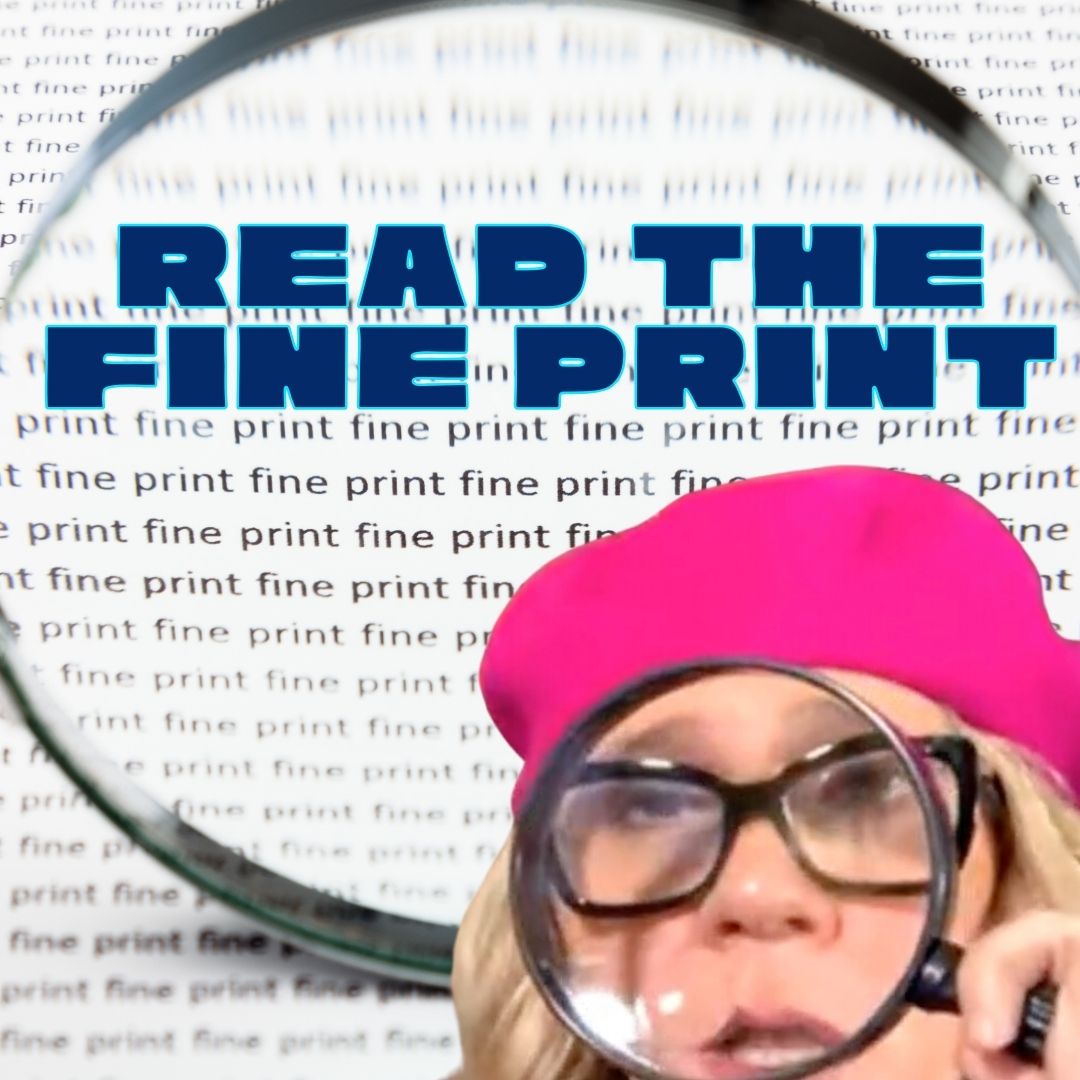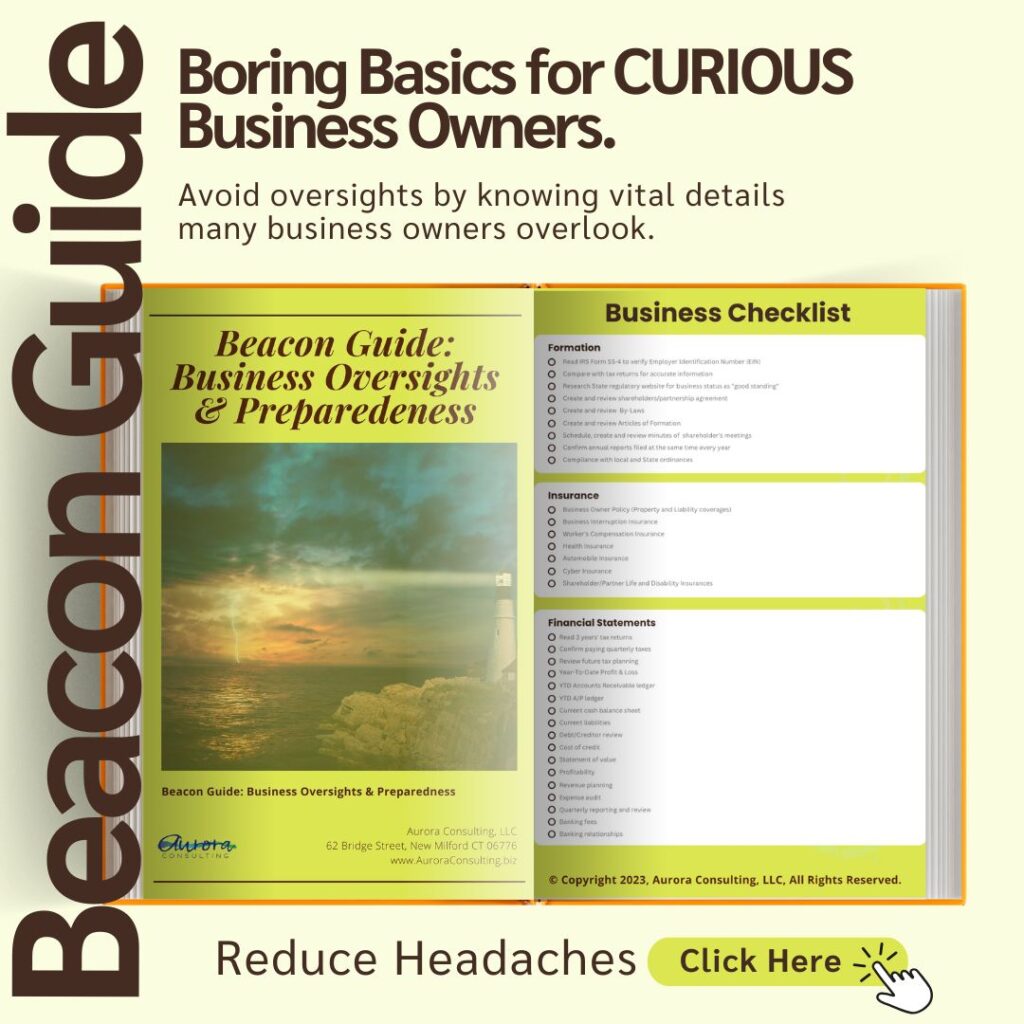- Are you the kind of person who reads those long legal “Terms of Use” statements on websites?
- When you get a new credit card, do you read the Terms of Service statements and APR disclosures?
I am that kind of person. I like to read. I know you’re thinking, “He’s well and truly insane because reading TOS disclosures is not what people call ‘reading!’”
This affection for reading complicated disclosures and the like is one of the qualities that made me successful as a Mortgage Banker for 30 years.
I cannot tell you how many times I won an argument with a loan underwriter or processor or colleague because I’d read the actual guidelines. While I didn’t always quote chapter and verse, and often didn’t need to, the fact that I had read the guidelines informed my ability to win the argument.
Sometimes, knowing the guidelines helped me to say to an underwriter, “Show me where in the guidebook it says that, and I’ll happily comply and get the document you requested from the loan applicant.”
 That’s some poker-level “call your bluff” Yoda-level-Jedi-mindtrickityness, right there.
That’s some poker-level “call your bluff” Yoda-level-Jedi-mindtrickityness, right there.
My reading of the underwriting guidelines also helped me to call “B.S.” on people in the business who tried to take shortcuts…sometimes illegal shortcuts.
Consider the argument I was having with a loan processor one day about an appraiser’s failure to include the market value of a rental apartment in a multi-family house on the appraisal report (a “Standard Operating Procedure” of appraisals, BTW, FYI, and WTF).
While we’re having this polite and only slightly animated discussion—I was always a respectful professional—the Vice President of the mortgage company emerged from his office and shouted across the room at me, “Trevor, just go to Staples, buy a blank lease and type one up with the rental amount on it!”
Yes, this really happened; I remember the loan applicant’s name, FYI, and this happened way back in 2001!
And, no, I did not buy a lease. Instead, I called the appraiser myself and requested the appropriate amendment to the report. This wasn’t crossing any legal lines because I was requesting something that was considered “common and customary.”
And, no, I did not continue working at that company very much longer for obvious reasons.
I remember another reason for my affinity for reading disclosures. From the early days of my mortgage career, when presenting an application disclosure to a loan applicant, I wanted to explain to them what they were signing. I know that many of my colleagues, then and probably now, took the shortcut and simply asked people, “Sign here.”
I refused to disrespect the loan applicants that way. I showed them due respect by first reading and learning the disclosure forms, then explaining to them before they signed, in the simplest language possible, what the heck they were signing. I refused to take the shortcut.
This shortcut mentality isn’t limited to people committing fraudulent illegal activities in the mortgage business. We see Small Business Owners taking shortcuts all the time, and we also see how shortcuts can get people in all kinds of trouble for their businesses. Not the illegal kind of trouble necessarily. More often than not, shortcut thinking leads to trouble with basic business operations, and, too often, profitability.
Let’s get to the meat of why we wrote this blog. We experienced something this week that is a good example of the “shortcut mentality” and directly ties into the opening premise: I like to read Terms of Use disclosures.
Our services include general business consulting. A small business client recently engaged our services. Priority one is to improve bottom-line cash flow. Secondarily, it frees up time for our client to better run her business.
This secondary activity involves mostly organizing basic business operations systems and procedures. This is a business that has experienced rapid growth in the past three years, far faster than the owner could keep up with the increase in business to find the time to get the fundamentals in place.
She presented us with an important objective: she wanted to offer her employees health insurance and a pension plan. She loves her team and she wants to reward their hard work and loyalty with these benefits.
Fortunately, the State of Connecticut recently passed legislation requiring all small businesses in the state with 5 or more employees to register with a new state-managed pension plan. The employer doesn’t need to contribute, simply register with the state for the plan. Employees can then decide if they wish to contribute to the plan, overseen by the state Comptroller’s office.
We thought this was an excellent opportunity for our client to at least begin to offer a pension plan to her employees, with a longer-term goal of offering a better plan in the future, which the employer contributes. Registering with the state plan would also keep the business in compliance with state regulations, another fundamental business organization principle we’re helping our clients to implement.
In our first meeting with our client, we discovered her accountant had not filed the required annual reports with the Secretary of State’s office for three years, thus putting the business entity in jeopardy of imminent dissolution. We immediately filed all the reports.
The deadline for registering for the state-mandated pension plan was August 31st. On August 30th, I jumped on the state website to register our client. The state is using an outside vendor as the administrator of the plan. The state website redirects a registrant to the third party’s website.
I began the process of registration, entering the business EIN and special access code provided by the state. I created a username and secure password (a good topic for a future blog, BTW, especially for folks with the “shortcut” mentality).
I was then directed to the vendor’s “Terms of Use” disclosure page on the website. I scrolled through in my attempt to read the disclosures. Navigation was difficult due to the graphics configuration of the information box, but I found my way through most of the disclosures. Having read lots and lots and lots of Terms of Use disclosures over the years, I can skim quickly because many of the terms are standardized.
 But then I arrived at paragraphs 24-26 and my fast-scanning eyes had to hesitate and back up because what I was seeing was, at first glance, outrageous. “This can’t be,” I said to myself as I scrolled back to slow down and read these three paragraphs more carefully.
But then I arrived at paragraphs 24-26 and my fast-scanning eyes had to hesitate and back up because what I was seeing was, at first glance, outrageous. “This can’t be,” I said to myself as I scrolled back to slow down and read these three paragraphs more carefully.
Essentially these three paragraphs remove some of the registering business’ autonomy in its decision-making and essentially makes the pension plan administrating vendor a business partner of sorts! I couldn’t believe my eyes.
Humor me, and read the paragraphs for yourself and tell me if you agree these terms are absolutely outrageous, or not.
24. Use of Your Trademarks and Logo
By accepting the terms of this Agreement, you give xxxxx a limited, non-exclusive, royalty-free license to use your logo and/or trademark for the purposes of performing the services to support Plans using the xxxx Platform, xxxxxx business development purposes, or for any joint marketing activities or creating marketing collateral. xxxxxx will use your logos or trademarks in the form provided to us.
25. Non-Solicitation, Non-Compete
Unless we have agreed otherwise in writing, you and your firm agree not to solicit to employ any employee of xxxxxx or xxxxxx client or prospective client that you come to know solely by way of this Agreement. General advertisements and other similar broad forms of solicitation shall not constitute solicitation for purposes of this Agreement. Other than as expressly permitted by this Agreement or otherwise agreed upon in writing by xxxxxx, you also agree not to provide, directly or indirectly, or assist others in providing services that compete with xxxxxx services to any xxxxx client or end user of the xxxxx Platform.
26. Marketing and Business Development
You and your firm will devote sufficient time and resources to cooperate in good faith with xxxxx and/or create appropriate public and promotional announcements relating to the relationship set forth in this Agreement. This potentially includes conspicuously highlighting xxxxx on your website, inviting xxxxx as a speaker at in-person or virtual events, introducing xxxxx to Qualified Leads[2], and otherwise engaging in joint business development activities and regular meetings designed to promote and expand the Parties’ relationship and evaluate opportunities to expand the use of the xxxxxx Platform for clients and potential clients.
Now, I’m no pension plan expert, I don’t pretend to be, at all. So, I called an expert, someone with 30 years in the pension planning profession. I read the three paragraphs to him and he was as astounded and outraged as I was. I then ran it by my partner, Linda Rey, and I called another expert with a payroll services company that also provides pensions as part of their package.
We all agreed these terms were ridiculous. We could not understand how the State was allowing these terms to exist in a legislatively mandated pension program. Our combined conclusion was that no one at State level was aware of these terms.
Most likely the vendor went through a basic vetting process, but somewhere along the way, someone at the State level took a shortcut and didn’t delve into the details. And, as they say, the devil is in the details, isn’t it?
I copied out the terms and pasted them into a word doc for easier reading.
Next, I call customer service for the vendor. The customer service representative was an excellent professional, but she basically said there was no workaround for the required acceptance of these terms. You cannot complete the registration for the pension plan without accepting the vendor’s Terms of Use.
She suggested a supervisor might offer better insight and a solution to my conundrum. She attempted to get a supervisor on the line, and, in the absence of an available person, took my contact information. As of this writing, two days later, no one from the vendor has responded to my inquiry.
I asked the customer service representative if I was the first person to raise this issue. “You are definitely the first person who has called while I’m working,” she responded.
And, there you have it, that’s the other shortcut-mentality problem. Because it is clear that many, many small business owners all across the state have registered for this pension plan and likely not read the Terms of Use disclosure. If they did read it, they simply signed off without a clear understanding what it was they were signing, in this case, essentially abdicating several aspects of how they run their businesses.
I contacted the state Comptroller’s office and, to their credit they did respond by phone and email. But their response proved my initial suspicion that no one at state level had actually read this Terms of Use disclosure.
I pushed back on their email—where they essentially patronized me and told me to contact the vendor—with a long-winded dissection of the argument I was making, and I included a PDF of the copied out Terms.
I’m waiting to hear back from the vendor and the State and I will update you all if and when I do.
But I hope that your takeaway from my love of reading disclosures is twofold.
First, read the disclosures. It probably takes an additional 3-4 minutes of your time to do so. If necessary, show a disclosure to your attorney (every small business everywhere should have a relationship with a good business attorney, and, if possible, have one on retainer for just such situations).
Second, there are no shortcuts!
How many business owners simply “accepted” these ridiculous Terms of Use disclosures to complete and comply with the state-required registration simply to “get it over with?”
We don’t know if or even how this vendor could possibly enforce these three paragraphs, but acceptance of the Terms of Use certainly gives them the right to do so, and to impinge on the efficient running of YOUR small business.
Linda Rey and I would love your feedback on this article. Please email [email protected] with your thoughts, ideas, and criticisms. I have no ego about this stuff; and last I checked, we don’t bite!
#SimpleSenseForSmallBusiness #BusinessSense #BusinessCommonSense #SmallBusinessForDummies
#Pizza #Shortcut #TermsOfUse #TermsOfService #Disclosures #ReadingIsFundamental #SmallBusiness #Entrepreneurs
#SmallBusinessPension #SmallBusinessPensions #PensionPlans #PensionPlan #EmployeeBenefits #SmallBusinessPension #366Glitch #Glitch #SmallBusinessMistakes #Glitch366





